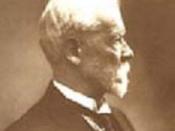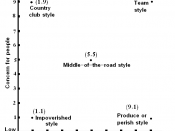The work and skills required of managers across organisations varies greatly according to a boundless number of factors. In order to identify and analyse the function of managers in organisations, it is of utmost importance to first isolate the environment in which managers exist. Working towards a purposely identified set of goals, an organisation comprises people who must work with and through each other to meet these goals (Robbins, Bergman, Stagg & Coulter, 2003). While the deliberate structure of an organisation may vary greatly depending on its specific goals, this structure of professional relationships allows the members of the organisation to work efficiently and effectively towards achieving those organisational goals. Managers do not exist in a vacuum; rather they exist and are defined by their position within the organisation, relative to superiors, other managers, and subordinates. It is this relative position, along with characteristics specific to the organisation (such as organisational culture and structure), which dictates the skills and work of managers.
This paper will analyse and discuss a brief history of the evolving school of management, and the resultant managerial theories, in order to make comparisons on the work and skills of different managerial levels within the organisation.
The emergence of industrial age, in the latter half of the nineteenth century created the basis for modern management. Such companies operated mainly in the railroad and steel industries (Allred, Snow & Miles, 1996), and were largely functional in structure. Employees of such a functional company would be entirely involved in technical speciality, and would not become involved in management until they reached the top of the managerial hierarchy. However with the new challenges with the emergence of national markets, consumer expectation and the manifestation of high-level technology, the organisation was required to face new challenges (Chapman, 2001). Accordingly, the functional...


